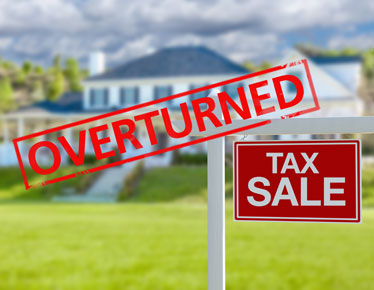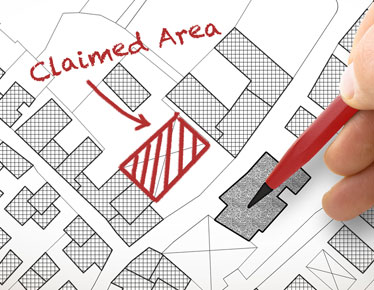Tax Sales In Pennsylvania: A Guide to Your Rights

Quick Summary
Under Pennsylvania’s Real Estate Tax Sales Law, property owners have specific due process rights that the Tax Claim Bureau must respect before proceeding with an Upset Sale for unpaid real estate taxes. This article outlines those rights, including requirements for adequate notice, personal service, and alternative contact methods if you are not initially reached.
You also have the right to challenge a sale if these protections were not strictly observed. Importantly, while you may prevent a sale by paying delinquent taxes, post-sale redemption is not allowed. Immediate legal assistance is advised if your property was sold at an Upset Sale to protect your rights and explore options to set aside the sale.
Tax Sales In Pennsylvania: A Guide to Your Rights
The law is very clear that the sale of real property for the collection of real estate taxes may not be implemented without the due process of law as guaranteed in the Pennsylvania and United States Constitutions. This due process requires at a minimum that an owner of land be actually notified by the government, if reasonably possible, before his land is forfeited by the state. Likewise, the burden is on the Tax Claim Bureau in all cases to demonstrate compliance with the Real Estate Tax Sales Law (“Tax Sale Law”).
Keeping these two principles in mind, if you find that your real estate has been sold at an Upset Sale or Judicial Sale without proper and required notice to you, you may be successful in overturning the sale. Of course, you should contact an attorney immediately, as soon as you learn that a sale occurred at either an Upset Sale or Judicial Sale, even if it is years later.
Remember, you have due process rights guaranteed by the United States and Pennsylvania Constitutions, even if you did not pay your taxes. These are some of your key rights and the government’s required compliance before your home or other real estate may be sold at an Upset Sale.
- You have the right to have the Tax Claim Bureau strictly comply with all of the requirements of Tax Sale Law before you are deprived of your property at Upset Sale.
A failure by a tax claim bureau to strictly comply with each and every statutory requirement of the Tax Sale Law will nullify an Upset Sale. The focus is not on the alleged neglect of the owner, but rather on whether the activities of the Tax Claim Bureau strictly comply with all of the requirements of the Tax Sale Law such that the Upset Sale is valid. - You have the right to four kinds of notice before an Upset Sale.
- United States certified mail, restricted delivery, return receipt requested, postage prepaid;
- If the Tax Claim Bureau does not receive the required return receipt, the Tax Sale Law requires that similar notice of the sale must be sent to each owner at least ten (10) days before the Upset Sale by United States first class mail, proof of mailing, at the owner’s last known post office address.
- Personal service upon an owner of an owner-occupied property as discussed below.
- Posting of the property is required at least ten (10) days prior to the Upset Sale pursuant to 72 P.S § 5860.602(e)(3). Posting must not only be sufficient to notify the owner of the pending sale, but also must provide sufficient notice to the public at large so that any interested parties will have an opportunity to participate in the auction process, and to notify others, such as mortgage and lien holders. To constitute notice by posting that is reasonable the posting must be conspicuous, attract attention, and be placed for all to observe.
- Publication at least thirty (30) days prior to any scheduled Upset Sale in two (2) newspapers of general circulation in the county, and once in the county legal journal. The notice shall set forth (1) the purposes of such sale, (2) the time of such sale, (3) the place of such sale, (4) the terms of the sale including the approximate upset price, (5) the descriptions of the properties to be sold as stated in the claims entered and the name of the owner.
- You have the right to be personally served.
The Tax Sale Law requires that an owner-occupied property cannot be sold at an Upset Sale unless the owner has been personally served with written notice of the sale at least ten (10) days prior to the date of the actual sale. 72 P.S. § 5860.601(a)(3). If you are not personally served, the Upset Sale may be defective, even if you had actual notice of the sale.
Be warned that if the Tax Claim Bureau can show “good cause” to a Court, the Court may waive the personal service notice requirement. Often this happens in a routine manner and at times the waiver of personal service is unwarranted and may be challenged, such as, when the Tax Claim Bureau did not attempt personal service in good faith.
- You have the right to have the Tax Claim Bureau make additional efforts to find you for purposes of giving you notice before your property is sold.
The Tax Sale Law requires additional notification efforts by the Tax Claim Bureau when mailed notification is either returned without the required receipted personal signature of the addressee or under other circumstances raising a significant doubt as to the actual receipt of such notification by the named addressee or is not returned or acknowledged at all. In those cases, before an Upset Sale can be conducted or confirmed, the Bureau must exercise reasonable efforts to discover the whereabouts of such person or entity and notify her.
The Bureau’s efforts shall include, but not necessarily be restricted to, a search of current telephone directories for the county and of the dockets and indices of the county tax assessment offices, the office of the recorder of deeds and prothonotary’s office, as well as contacts made to any apparent alternate address or telephone number which may have been written on or in the file pertinent to such property. The Bureau must make a notation in the property file describing the efforts made and the results of its efforts.
- You have the right to be offered a payment plan in certain circumstances.
If a taxpayer offers 25% of the outstanding delinquent taxes, the Tax Claim Bureau is required to offer the taxpayer the option of entering into an installment agreement for the delinquent taxes on a property. 72 Pa. Stat. § 5860.603. An Upset Sale is void if the Bureau fails to either calculate the amount paid or offered by the taxpayer or fails to offer a payment plan. Further, the Bureau must notify a taxpayer of their right to enter into such an installment payment agreement.
- You have the right to pay your delinquent taxes in full prior to the Upset Sale.
A property owner may satisfy the tax liens against his property by paying the amount of the liens to the Tax Claim Bureau prior to an Upset Sale. The Bureau must accept payment in full, which may include interest and other charges due to the delinquency.
- IMPORTANT: You do not have the right to redeem your property after an Upset Tax Sale.
The Tax Sale Law has no provision to redeem your property after a valid Upset Sale. The only post-sale rights of a taxpayer are to petition to set aside the sale. The opportunity to redeem exists only pre-sale. After sale, you must either challenge the sale following confirmation within thirty (30) days, or may challenge the sale thereafter at any time on the basis of defective notice or other jurisdictional defects in the sale.
- You have the right to challenge the Upset Sale.
If your property is sold at Upset Sale and the Tax Claim Bureau failed to safeguard any of your rights outlined above, or otherwise failed to strictly comply with the Tax Sale Law, you may file a petition to set aside the sale. You may even challenge an Upset Sale after confirmation of the sale with respect to lack of notice, including after the property is deeded to the purchaser. You should act promptly as soon as you learn of the sale and should contact an attorney at once to ensure that your property rights are protected.
You must be prepared to pay your delinquent taxes and other charges if the sale is set aside. There is no requirement to repay the tax sale purchaser; the purchaser’s money will be refunded by the Tax Claim Bureau if you successfully set aside the sale.
Conclusion
If your property is sold at an Upset Sale, it is important that you immediately contact an attorney as soon as you learn of the sale, even if months or years later. The Tax Claim Bureau is required to provide you notice in strict compliance with the Tax Sale Law.
If you have a question concerning an Upset Sale of your property or the Tax Sale Law, please contact Eric B. Smith, Esquire, 215.540.2653 or esmith@timoneyknox.com.
Frequently Asked Questions
What happens to liens from other creditors after an Upset Sale?
Mortgages and other liens typically remain, with only the tax liens being discharged. If your property does not sell at an Upset Sale it will then be sold at a Judicial Sale. Property sold at at Judicial Sale is sold free and clear of all liens and encumbrances.
Can I purchase my own property at an Upset Sale?
No, you cannot purchase your own property at an Upset Sale, but, others, including family or friends, may do so. There is a process whereby a bidder must be authorized to participate in the sale itself. One may not just appear at an Upset Sale and bid.
What must I prove in order to get my property back after an Upset Sale?
You must prove nothing. Rather, the Tax Claim Bureau must prove that it strictly complied with the Tax Sale Law. After the Bureau meets its burden, usually by submitting its file and testimony from a representative of that office, then, you, the owner may put on evidence to show the defects in the Bureau’s notice or non-compliance with the Tax Sale Law.
How much time do I have to challenge the Upset Sale?
Initially you are given thirty (30) days from the date of the Court’s confirmation nisi to file objections to the sale, however, there is no limitation on time in which to challenge an Upset Sale as to giving of notice under the act, to the time of holding the sale, or to the time of petitioning the court for an order of sale.
May I still challenge the Upset Sale if someone paid for and now has the deed to my property?
Yes, you may always challenge the validity of an Upset Tax Sale as to giving of notice under the act, to the time of holding the sale, or to the time of petitioning the court for an order of sale.
If someone paid for and now has the deed to my property after the Upset Sale, do I need to pay the buyer its purchase money back?
No. If you are successful in challenging an Upset Sale after the deed has transferred, or, after the buyer has paid its purchase money, the Tax Claim Bureau must return the money to the buyer. You have no obligation to pay the buyer. The buyer bid on and purchased the property at its own risk that the Tax Claim Bureau complied with the Tax Sale Law.
Timoney Knox's Real Estate Litigation Group
Timoney Knox has real estate attorneys experienced in buying and selling property; in mortgaging and borrowing against real estate; in interpreting and applying the wide variety of local land use and zoning laws; and in representing the needs and concerns of individuals as well as homeowners’ associations, condominiums, and planned communities.

Real Estate Law
Tax Sale Overturned
Our real estate litigation team successfully overturned an Upset Tax Sale in Fayette County, Pennsylvania. Have you been affected by improper notice of a tax sale, or lost your property as the result of a tax sale?
Read More
Real Estate Law
An Overview Of Adverse Possession In Pennsylvania: Open, Exclusive And Hostile
Explore the principles of adverse possession in Pennsylvania: legal requirements, from actual, visible possession to the statutory periods and exceptions.
Read More





